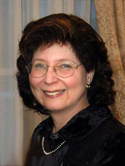| Abstract: |
Despite prolonged therapy (18 months), children with advanced non-lymphoblastic, non-Hodgkin's lymphoma (NHL) treated on previous Children's Cancer Group (CCG) trials achieved less than a 60% 5-year event-free survival (EFS). In this study we piloted a shorter but more intensive protocol ('Orange') to determine the feasibility, safety, and efficacy of this alternative treatment approach. Thirty-nine children received a CHOP-based induction, etoposide/ifosfamide consolidation, DECAL (dexamethasone, etoposide, cisplatin, cytosine arabinoside (Ara-C) and L-asparaginase) intensification, and either one or two similar but less intense maintenance courses. Patients were stratified to standard-risk (5 months) vs high-risk (7 months) treatment. High risk was defined as either bone marrow disease, CNS disease, mediastinal mass ≥ one-third thoracic diameter at T5 and/or LDH ≥2 times institutional upper limits of normal. All other patients were considered to be standard risk. Results were compared with the previous CCG NHL study (CCG-503). Sixteen and 23 patients were considered standard- vs high-risk, respectively. The 5-year EFS and overall survival (OS) were 77 ± 7% and 80 ± 7%, respectively. The 5-year EFS and OS were significantly better in the standard- vs high-risk subgroups (100% vs 61 ± 11%) (P < 0.003) and (100% vs 65 ± 11%) (P < 0.01), respectively. Lactate dehydrogenase (LDH) ≥2 × normal (NL) was associated with significantly poorer outcomes (LDH ≥2 × NL vs <2 × NL) (5-year EFS: 55± 12% vs 100%) (P < 0.0004). This CCG hybrid regimen, 'Orange', of short and more intensive therapy resulted in a significant improvement in outcomes compared with the previous CCG trial of more prolonged but less intense therapy. This regimen that deletes high-dose methotrexate, if confirmed in a larger trial, could be considered as an alternative treatment approach in children without high tumor burdens (LDH <2 × NL) and Murphy stage III disease. |



